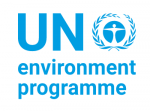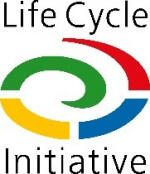New Plastic Pollution Report shows the key drivers and magnitude of plastic leaking into the marine environment in three regions: Eastern and Southern Africa, the Mediterranean, and Southeast Asia
Gland, Switzerland, 22 October, IUCN – This new report is an important step to close the plastic pollution knowledge gaps in three regions: Eastern and Southern Africa, the Mediterranean, and Southeast Asia – showcasing inter- and intra-regional similarities and differences. The report provides an overview of plastic leakage magnitudes and hotspots and provides decision-makers with priority interventions to combat plastic pollution.

Photo: © IUCN Kenya, White Rhino Films
The new report, “Plastic Pollution Hotspotting and Shaping Action: Regional Results from Eastern and Southern Africa, the Mediterranean, and Southeast Asia” is the result of work across eight locations and provides comparisons of the magnitude of plastic leakage and plastic pollution hotspots. National assessments from Kenya, Mozambique, South Africa, the United Republic of Tanzania, Thailand, Viet Nam, the Republic of Cyprus, and a provincial assessment of the island of Menorca (Spain) have been combined to showcase the inter- and intra-regional outcomes of this 2018-2020 research.
In order to demonstrate the similarities and differences for the eight locations in the three regions, a series of comparative summaries show what plastic is leaking and where; explore regional recycling capacities; and a comprehensive analysis of the polymer, application, and sector hotspots is detailed with explanator tables and graphs.
Important questions explored in this report were:
- What were the key drivers of plastic leakage found in the eight assessments?
- How do plastic waste management practices compare?
- What is the plastic recycling capacity of each pilot site and to what extent is it used to manage domestic and imported plastic waste?
- Were there common geographic archetypes where plastic leakage is occurring?
- Which polymers and plastic applications were most prevalent in the polymer hotspots?
- Which of the hotspot category results were robust enough to use as the basis for targeted interventions?
- How can the quality and robustness of hotspot results be improved?
Importantly, the report notes that robust data is what leads to high quality metrics, which in turn lead to actions that result in measurable change. There are a range of potential priority interventions for consideration by decision-makers to generate ideas to complement policies and implement real on-the-ground-change to mitigate plastic pollution. Finally, highlights of the publicly available data for each assessment are shared.
This report came to fruition from assessments that utilised the National Guidance for Plastic Pollution Hotspotting and Shaping Action, a guide developed by the United Nations Environment Programme (UNEP), International Union for Conservation of Nature (IUCN), and the Life Cycle Initiative. This guidance provides methods for identifying plastic leakage “hotspots”, finding their impacts along the plastic value chain, and prioritizing actions. A “hotspot” is defined as either a component of the system that directly or indirectly contributes to plastic leakage and impact or that can be acted upon to mitigate this leakage or the resulting impacts.
Our global ocean, coastlines, and rivers suffer from an immense volume of plastic pollution. This is a result of the unsuitable take-make-dispose economy, inadequate data, under-resourced waste management and infrastructure, and lack of policy direction on mitigation measures and effective interventions. There is a strong need for improved access to data and knowledge and a need to empower the right actors to take the best, science-based actions to close the plastic tap.
Acknowledgements and Support
This report is the result of three IUCN-led projects which were generously supported by the Swedish International Development Cooperation Agency (Sida) for the Marine Plastics and Coastal Communities project (MARPLASTICCs); Agence Française de Développement (AFD) for the PlastiCoCo project; and the Didier and Martine Primat Foundation for the Plastic Waste Free Islands – Mediterranean project.
 Photo: SIDA
Photo: SIDA
 Photo: © AFD
Photo: © AFD
 Photo: © Fondation Didiet et Martine Primat
Photo: © Fondation Didiet et Martine Primat
IUCN also wishes to acknowledge the leadership, support and cooperation throughout this process with our partners at UNEP and the Lifecycle initiative.
 Photo: © UNEP
Photo: © UNEP
 Photo: © LCI
Photo: © LCI
For further information please email:
Lynn Sorrentino, Marine Programme Officer, at Lynn.sorrentino@iucn.org
Other Resources
National Guidance for Plastic Pollution Hotspotting and Shaping Action
IUCN’s Close the Plastic Tap programme
MARPLASTICCs project
PWFI Mediterranean project
PlastiCoCo project



